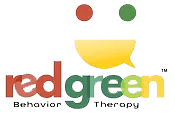| I’ve recently been asked by several social skills coaches and parents what to do about children who are dishonest (I personally don’t like to call kids “liars” and instead, use words such as “dishonest,” “non-truth,” etc.) First, we must understand why kids hide the truth, and based on the reasons, apply solutions and strategies. The truth is, it is hard to find any adult who never told a lie as a child. And there are many adults who still are not 100% truthful now, whether they call it a white lie, or do so for the sake of peace, etc. In this week’s post, we’ll focus on the reasons. What are the reasons why your child or student might be dishonest? 1. Fearing rejection 2. Feeling threatened; Fear of punishment or negative consequences 3. Having low self-esteem and not being able to admit to wrongdoing which would feel even more crushing; Wanting to Protect their self-esteem or image 4. Feeling Trapped 5. Wanting to gain attention, approval, or praise 6. Wanting to protect themselves, their own interests, or those of someone they care about 7. Wanting to avoid hurting someone’s feelings 8. Experimenting with the power of lying 9. Trying to fit in with their peers or a particular social group; Peer pressure 10. Wanting to feel more in control or powerful 11. Wanting to protect their privacy or belongings 12. Lacking an understanding of the consequences of their actions 13. Difficulty distinguishing between fantasy and reality Now what? In future posts, we’ll target several solutions and ideas based on the different reasons. Remember: Kids who lie are not defective, problematic, or immoral. Dishonesty is a behavior most children experiment with. We need to help them give up the need to lie by using effective parenting and therapeutic strategies. Yours, Dr. Devora |
